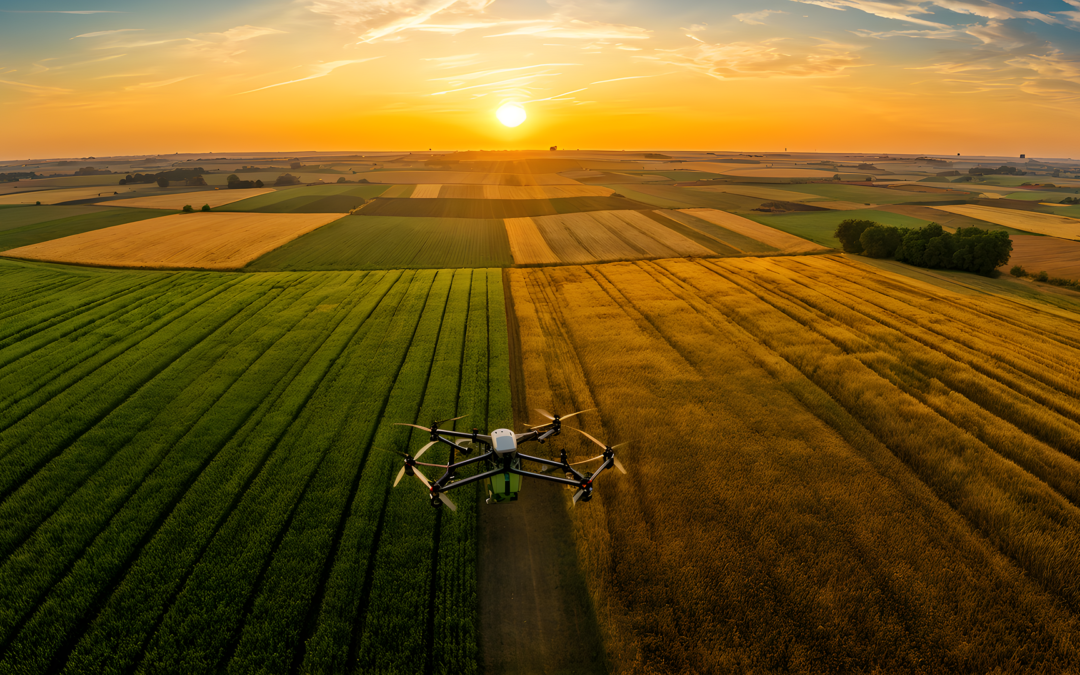Around the world today, agritech is revolutionizing modern farming practices, providing tangible solutions to growing problems like climate change and water scarcity. Agritech is a relatively new sector that is innovating ways to improve yields and food security while simultaneously protecting the environment. From alternative proteins and aquaculture to food waste reduction, a swathe of new agritech startups have been launched across the Middle East and beyond.
Pioneering companies are helping farmers to growth healthy plants and produce high quality fruits and vegetables, even in areas where water is scarce. Vertical farming and other controlled environment horticulture solutions can help farmers to produce crops with up to 95% less water than traditional agricultural processes, a capability that poses game-changing potential in countries with arid climates.
Food Security Is a Big Concern
For Middle Eastern countries, food security is a major concern today, with many MENA nations heavily reliant on foreign imports. Agritech can go a long way towards increasing local food production thanks to innovative technologies such as vertical farming and fog-based irrigation.
Home to millions of people, the Middle East has seen an unprecedented rise in demand for food. In addition to a growing population, the region has been challenged by geopolitics and international conflicts. As the MENA region continues to experience severe tailwinds with both water and arable land becoming more scarce, the need to depend on international markets for staple food items has increased significantly in recent months.
Despite the inherent challenges involved in farming in the Middle East, agriculture remains one of the region’s most important economic sectors. Nevertheless, the limited resources and high environmental cost involved in farming in a harsh desert environment continue to present considerable challenges for farmers. Today, agriculture accounts for around 13% of the region’s economy. However, thanks to agritech innovations, experts predict that this figure could soon be much higher.
Digital Tools Boost Productivity
Thanks to the rise of machine learning, artificial intelligence, IoT, sensors, analytics and other agritech developments, farmers today have sophisticated digital tools at their fingertips capable of helping them to make unprecedented leaps in productivity.
Across the MENA region today, water scarcity and poor management of resources is a major stumbling block for farmers. Data from the World Resources Institute suggests that by 2050, 33 countries worldwide could face extremely high water stress, with Bahrain, Qatar, Kuwait and United Arab Emirates ranking among the countries most severely affected.
Agritech a Promising Solution
Agritech presents a promising solution to water scarcity concerns, delivering more resilient and intelligent agriculture methods. AI recently helped farmers make huge strides in improving water efficiency in both fields and greenhouses thanks to the development of connected irrigation and nutrient distribution equipment, leveraging AI and IoT to adjust water and nutrient application, ensuring efficient use of limited water resources.
On-field sensors deliver imagery from fields in even the most remote areas, enabling farmers to identify areas that have been under- or over watered. Countries like the United Arab Emirates are increasingly investing in drone technology using laser beams to force precipitation and trigger rainfall for agriculture.
Having been hit by a particularly high heat wave in 2021 that saw temperatures rise above 125 degree Fahrenheit, Dubai typically receives around 4 inches per year, making it one of the most difficult countries for agriculture globally. Reliant on other countries for 80% of its food supply, Dubai has resorted to drastic measures to boost domestic food production, introducing novel technology and implementing a cutting-edge technique known as “cloud seeding”.
Cloud Seeding
Cloud seeding has actually existed in various formats for several decades. Scientists have known for some time that introducing silver iodide and various other chemicals to rainclouds can induce rain or snow. Indeed, there were reports of China relying on cloud seeding as early as 2008 to clear the skies before the Beijing Olympics. Some scientists have misgivings about cloud seeding, however, with concerns that accumulated particles might linger, with potentially detrimental impacts on both the environment and human health.
Over the years, the United Arab Emirates has invested more than $15 million in rain enhancement methods. Latterly, rather than relying on traditional chemical-based cloud seeding methods, the country has taken a different approach, “zapping” the air into submission using electrical discharges deployed by drones to pool water droplets in the air, triggering rainfall.
Vertical Farming
Another realm of agritech where the Middle East is making huge strides is vertical farming. With increasing urbanization and population growth in large metropolitan areas, many Middle Eastern nations are grappling with a severe shortage of agricultural land. Due to extreme climatic conditions combined with an overreliance on oil, the area has seen a significant degradation of its arable land, leading many farmers to turn to innovative food production methods.
Vertical farming and hydroponics in high-tech greenhouses are making headway in MENA’s agriculture industry, enabling farmers to make use of land surrounding urban areas and reduce food miles while simultaneously improving crop quality. Many experts cite agritech as a potential solution to many of the challenges faced by farmers across the Middle East today, improving crop yields and quality and ensuring an adequate supply of nutritious food to boost food independence and security in Middle Eastern countries.

